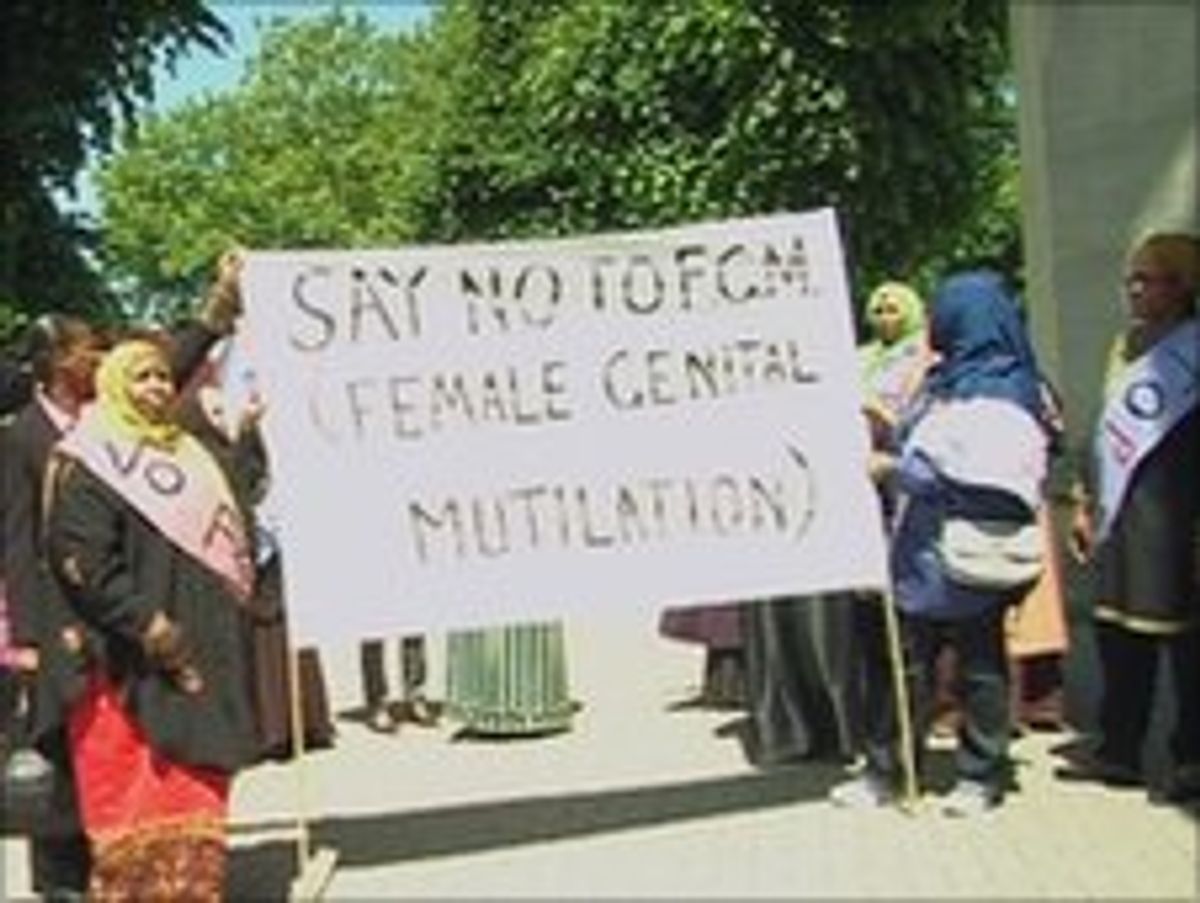More than 125 million women and girls alive today have been subjected to female genital mutilation, and 30 million more are at risk of genital cutting in the next decade, according to a report released on Monday by the United Nations Children’s Fund (UNICEF).
While support for the practice, which has no health benefits and can cause infection, infertility, loss of sensation and death, appears to be on the decline, the report indicates that a gap between public opinion on genital cutting and an "entrenched sense of social obligation" to maintain the practice "fuels its continuation."
More from UNICEF:
The report’s surveys found that not only are most girls and women against the practice, but that a significant number of men and boys also oppose FGM/C. In three countries -- Chad, Guinea and Sierra Leone -- more men than women want the practice to end.
While FGM/C has been virtually abandoned by certain groups and countries, it remains entrenched in many others, even where there is legislation against it and efforts by governments and non-governmental organizations to convince communities to stop.
FGM/C remains almost universal in Somalia, Guinea, Djibouti, and Egypt, with more than nine out of 10 women and girls aged 15-49 being cut. In countries such as Chad, Gambia, Mali, Senegal, Sudan, or Yemen, there has been no discernible decline.
By contrast, the practice has declined in Kenya, Tanzania, Benin, Iraq, Liberia, Nigeria, and the Central African Republic.
As Salon has previously noted, genital cutting remains widespread even in countries like Egypt that have laws explicitly banning it. It's a sign that it will take more than laws to eradicate the dangerous practice, experts say.
“FGM/C is a violation of a girl’s rights to health, well-being and self-determination,” said UNICEF Deputy Executive Director Geeta Rao Gupta. “What is clear from this report is that legislation alone is not enough. The challenge now is to let girls and women, boys and men speak out loudly and clearly and announce they want this harmful practice abandoned.”



Shares